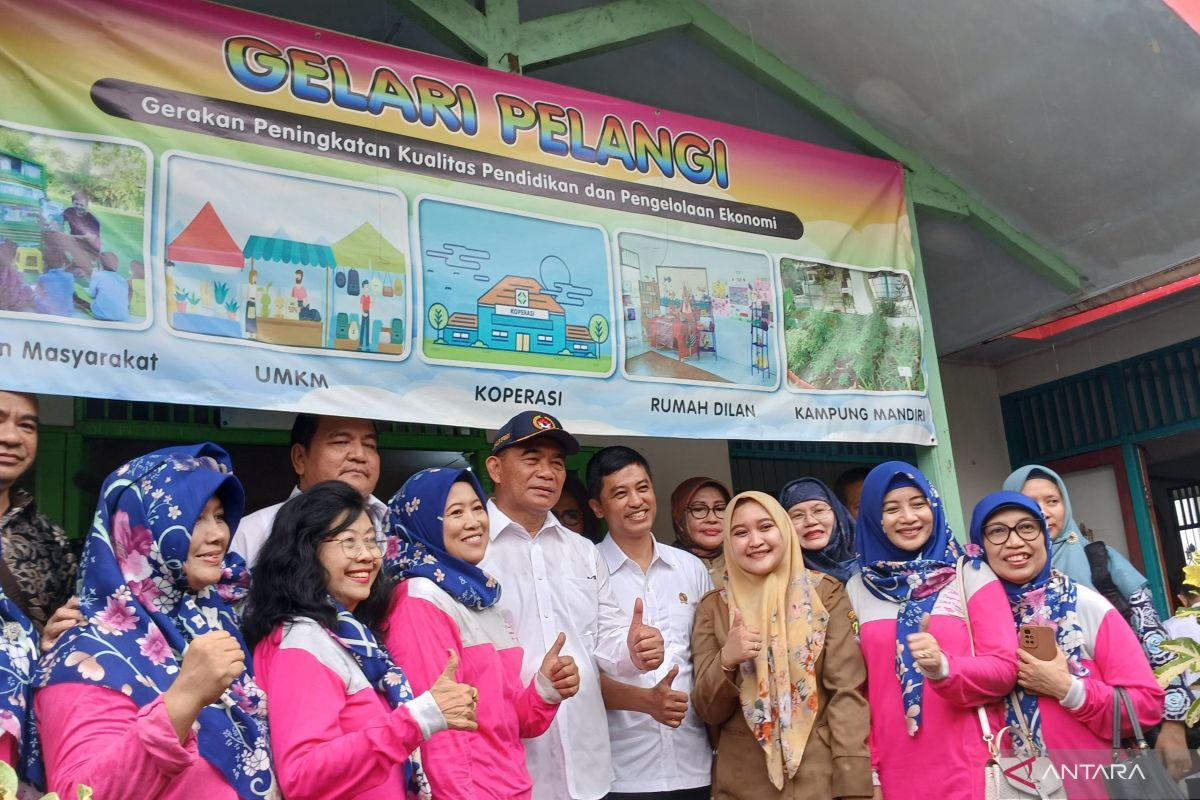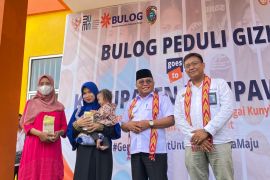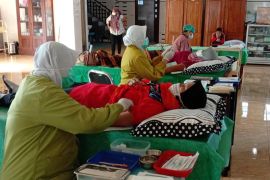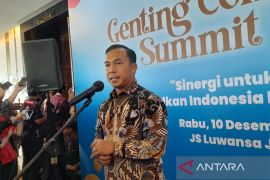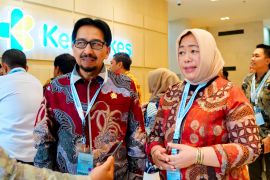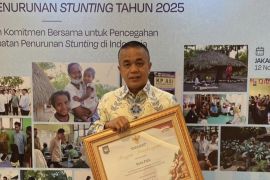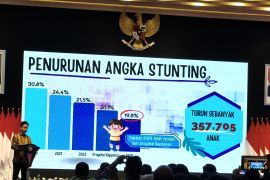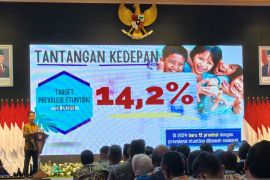"Relying on local health centers (puskesmas) is not enough to serve the 260 million Indonesians, while the number of posyandus reaches 300 thousand that can serve the communities," he remarked in Bekasi City, West Java, on Monday.
He explained that posyandus can help overcome the limited role of puskesmas in weighing and measuring the height of toddlers, thereby identifying malnutrition in toddlers.
Harbuwono made the statement while accompanying Coordinating Minister for Human Development and Culture Muhadjir Effendy on the implementation of the first simultaneous toddler measurement and intervention for stunting reduction this year.
The activity was held at Posyandu Villa Taman Kartini in Margahayu Village, Bekasi City.
He emphasized that mass weighing is important as an intervention measure in cases of stunting in children because if this condition were to be left unchecked, then their intelligence levels would drop and their development would be affected.
He explained that the Indonesian Nutritional Status Survey (SSGI) in 2021 found that the stunting percentage had reached 24.4 percent, while based on the Indonesian Health Survey (SKI) in 2022, it was 21.6 percent, whereas in 2023, it only decreased by 0.1 percent to 21.5 percent.
"It is important to identify stunted children throughout Indonesia. If there are toddlers whose weight and height do not increase, then immediately intervene, give them food, and so on," he remarked.
He also reminded mothers, who found that their children did not gain weight and height as they should, to immediately visit the posyandu.
"Mothers, if your children do not gain weight and height, then report quickly; come every month to the posyandu," he stressed.
Related news: Mother's role key in stunting reduction: Minister
Related news: Digitalization helps villages mitigate disasters: Minister
Translator: Lintang P, Kenzu
Editor: Rahmad Nasution
Copyright © ANTARA 2024
